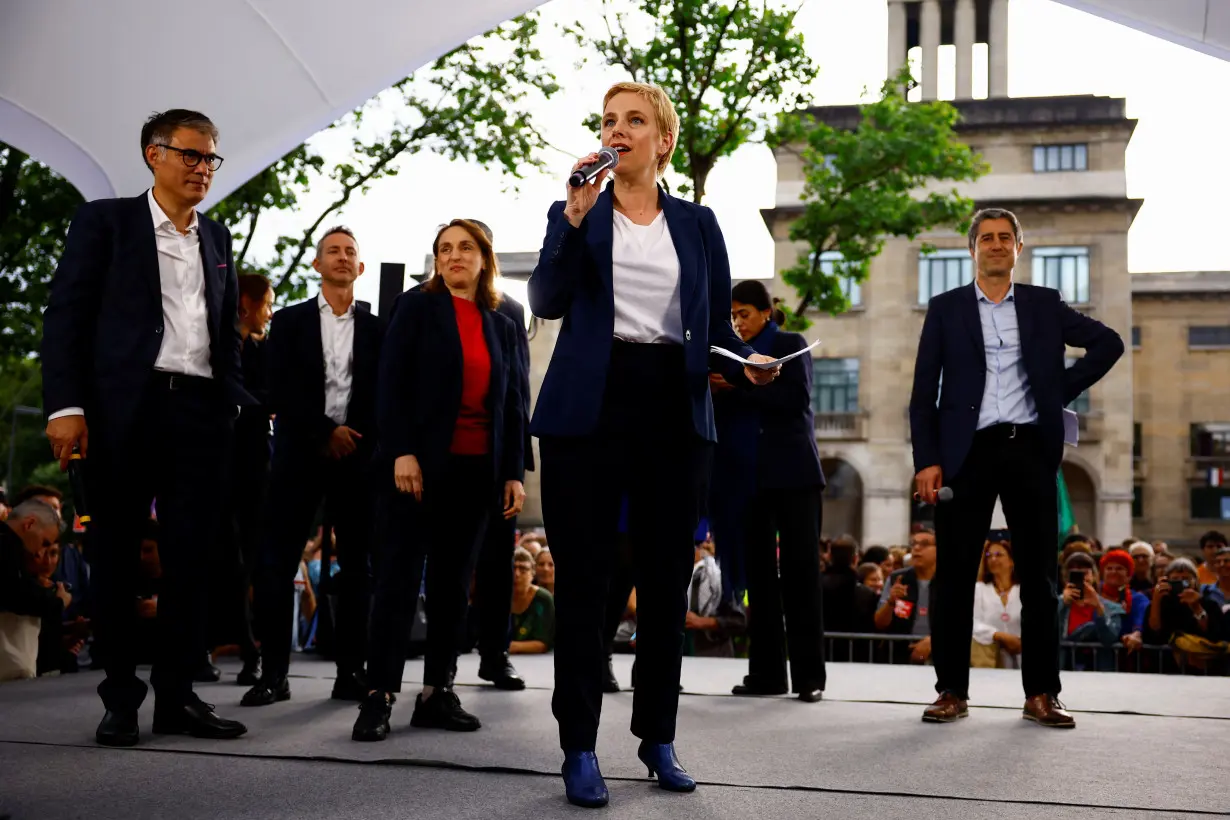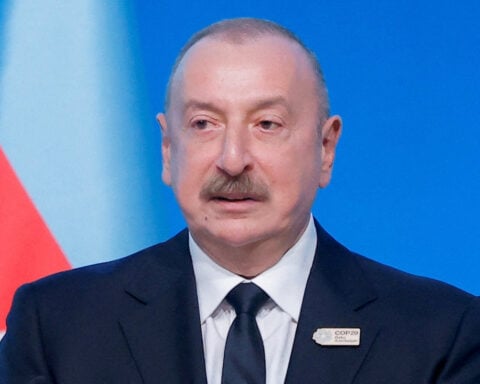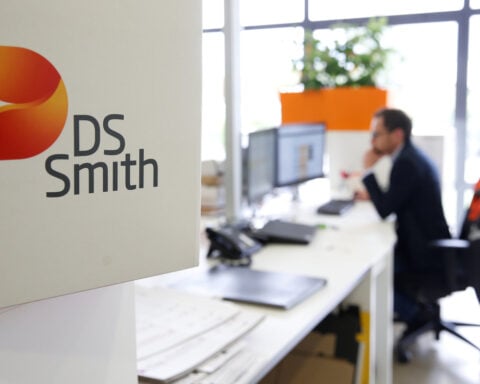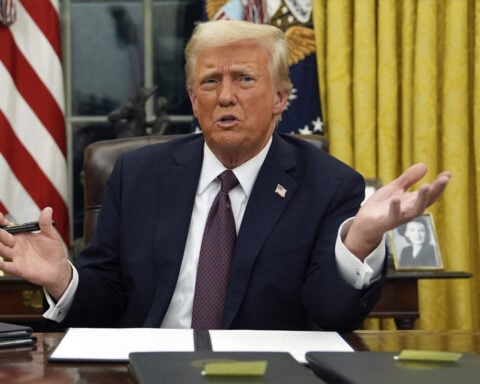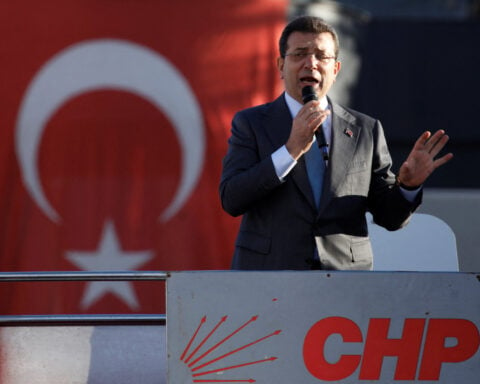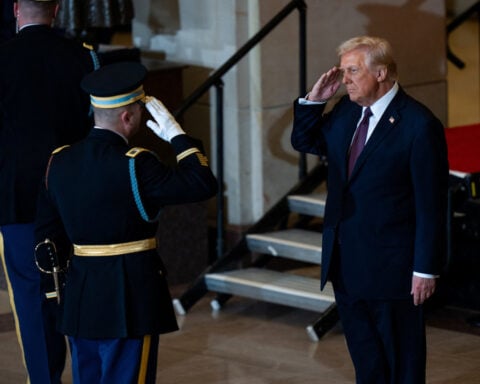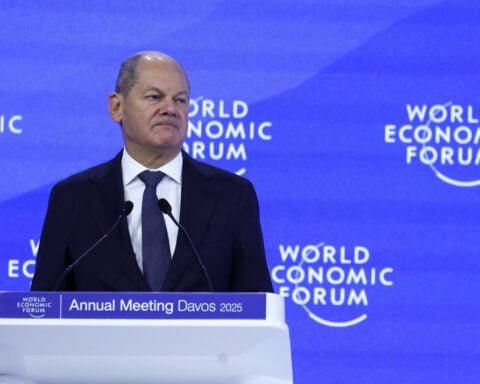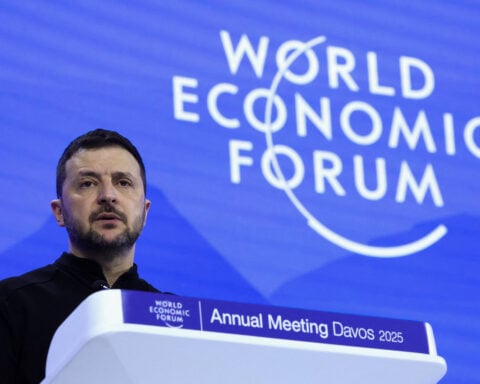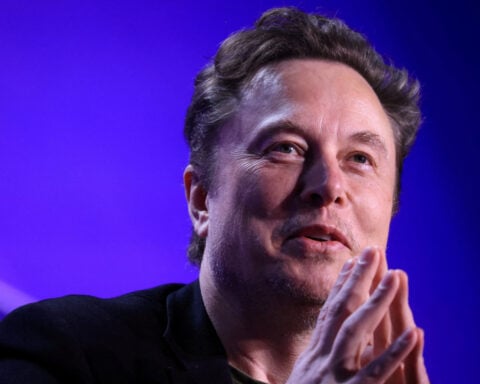PARIS (Reuters) - Campaigning kicked off on Monday for France's snap parliamentary election, which opinion polls suggest the far-right National Rally will win ahead of a left-wing alliance, with President Emmanuel Macron's centrist group trailing in third.
Political uncertainty has triggered heavy selling of French bonds and stocks since Macron unexpectedly called the election after Marine Le Pen's National Rally (RN) trounced his ruling centrist party in European Parliament elections.
Macron's gamble that he could catch other parties off-guard with just a few weeks to prepare for the vote, may backfire, the latest survey by Ifop for LCI suggested.
The poll suggests the eurosceptic, anti-immigration RN will get 33% of votes in the first round on June 30. That is down two points from Ifop's previous poll, but with the share of the conservative Republicans willing to form an electoral alliance with the RN, the total reaches 37%.
The alliance of left-wing parties now stands at 28%, up two points, whereas Macron's camp is a distant third at 18%, down one point. The second round will take place on July 7.
"We're going into uncharted territory and, in my opinion, we are going to move towards an ungovernable Assembly," 60-year-old voter Maxime Chetrit said.
Marie Balta, a retiree from Nimes in southern France, shared this concern but said the election could give parliament more power over what the president and government do.
"It's going to be very difficult, to have a tripartite Assembly with two strong blocks and a much smaller middle, but it's perhaps a chance to return to more democracy," she said.
STARTING GUN
Official campaigning began on Monday after a week in which parties scrambled to field candidates and strike alliances.
Macron's allies repeated assertions that a victory for RN, or for the left, could create a financial crisis. Prime Minister Gabriel Attal told RTL radio that a victory for either would be catastrophic for France, its economy and jobs.
But Clementine Autain, a leading MP for the hard-left France Insoumise, said the damage has already been done by Macron's successive governments.
"They have left us with whole piles of debt without improving the life of the French people. It is outrageous that they should lecture us," she told a meeting of the united left just outside Paris.
France's budget deficit came in well above target at 5.5% of economic output in 2023, rising from the year before in contrast to other major euro zone economies.
Even the captain of France's national soccer team, Kylian Mbappe, has weighed in, urging young people to "make a difference" at a time when "extremes" were knocking on the door of power.
Some far-right politicians said the French player was out of touch with reality.
Macron gathered key ministers and aides on Sunday evening to discuss the election, a person who took part said, adding that Macron's party had decided not to field any candidates in about 60 constituencies - out of 577 - where they considered that another mainstream candidate was in a better position to win.
But some in Macron's camp expressed doubts publicly about the snap election.
"This is the decision of the president, it's his prerogative," Finance Minister Bruno Le Maire told France Inter radio on Sunday.
"What I observe is that it has created in our country, among the French people everywhere, worries, incomprehension, sometimes anger. That's what I see among our voters."
The RN, which has already said it would slash the tax on energy and lower the retirement age, is set to detail its economic programme in the coming days.
Meanwhile, the European Central Bank's chief economist Philip Lane said there was no need for the ECB to come to France's rescue by buying bonds because recent market turmoil fuelled by political uncertainty was "not disorderly".
(Reporting by Yiming Woo, Ingrid Melander, Elizabeth Pineau, Layli Foroudi, Sudip Kar-Gupta, Manuel Ausloos and Benoit Van Overstraeten; editing by Christina Fincher, Kevin Liffey and Tomasz Janowski)

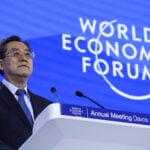 China's Vice Premier lunches with Dimon, Schwarzman and other Davos financiers
China's Vice Premier lunches with Dimon, Schwarzman and other Davos financiers
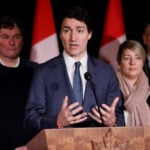 Trudeau says Canada is ready to respond to possible Trump tariffs
Trudeau says Canada is ready to respond to possible Trump tariffs
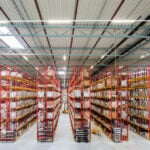 Prologis beats core FFO estimates on improving warehouse demand
Prologis beats core FFO estimates on improving warehouse demand
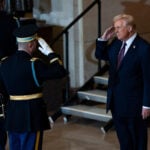 Trump's complaints about trade deficit with the EU and what may come next
Trump's complaints about trade deficit with the EU and what may come next
 Brittney Griner to test the market for then first time in career as WNBA free agency opens
Brittney Griner to test the market for then first time in career as WNBA free agency opens
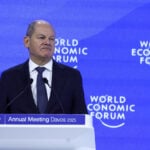 Germany's Scholz responds to Musk, saying freedom of speech must not back extreme-right
Germany's Scholz responds to Musk, saying freedom of speech must not back extreme-right
 Novak Djokovic beats Carlos Alcaraz in ‘epic’ Australian Open quarterfinal
Novak Djokovic beats Carlos Alcaraz in ‘epic’ Australian Open quarterfinal
